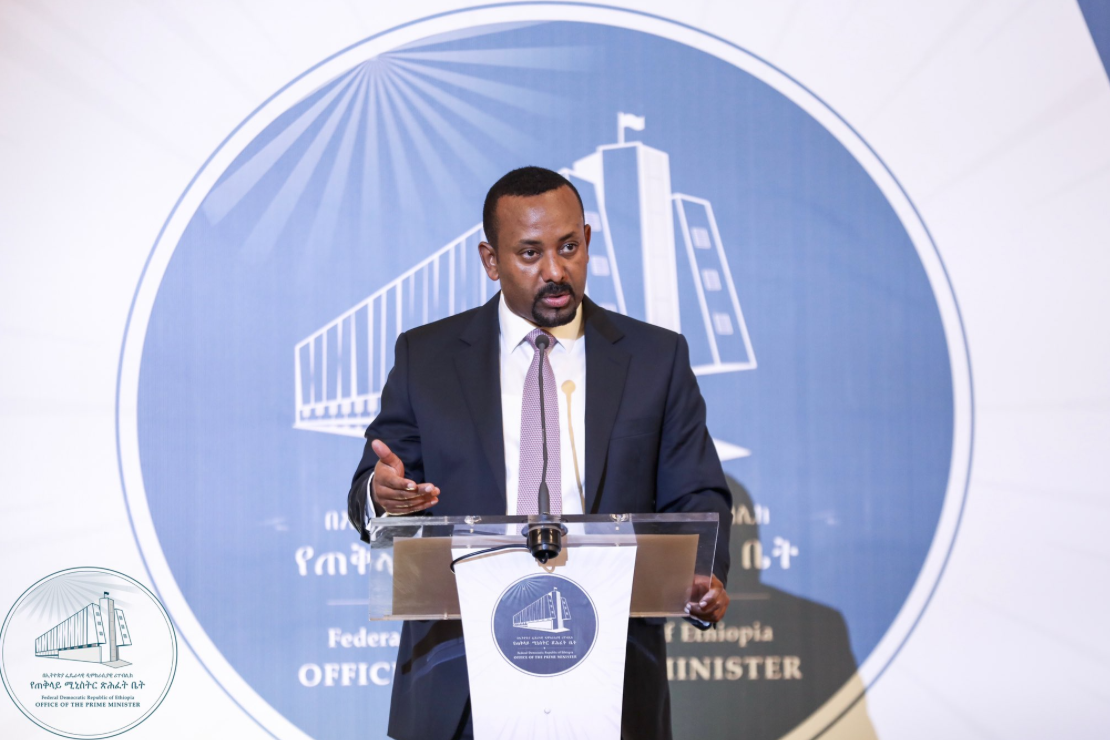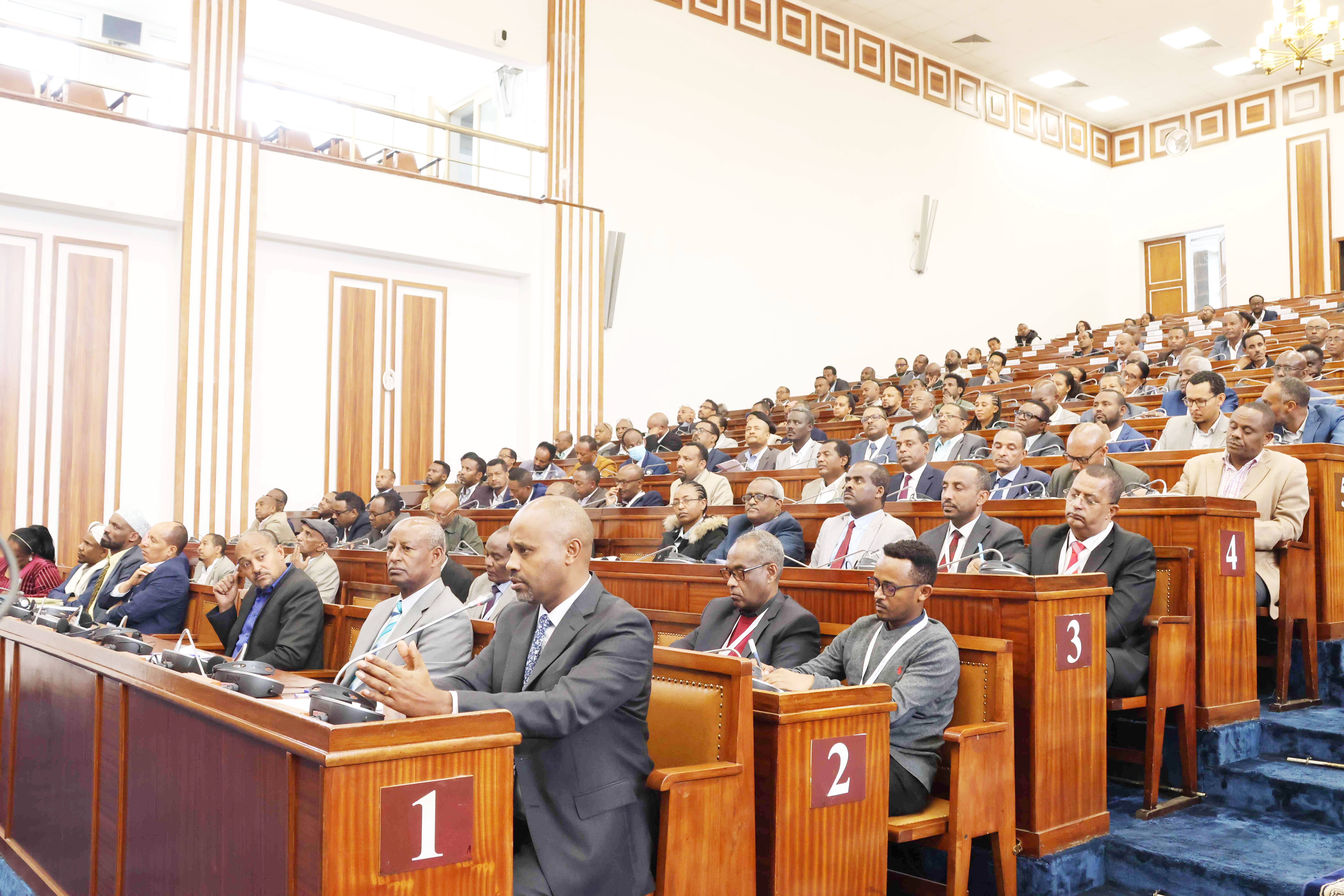
Fortune News | Dec 26,2020
Mar 2 , 2019
By Hintsa Andebrhan
Last month, Prime Minister Abiy Ahmed (PhD) sat down for an interview with the United Kingdom businesses newspaper, Financial Times. It was an illuminating read that allowed a level of insight into the Prime Minister’s vision for the country, the political and economic policies he follows and his thought processes.
Indeed, for all the attention that the article garnered, there was nothing unexpected revealed. The Prime Minister may have been vague about the details of his administration’s economic policies, but he has been an open book about the general direction where he wants to take the country.
The Prime Minister has, arguably, gone further than any that came before to build on his promises. He may not be perfect, and his administration has taken steps that have not been to the liking of a large part of the public. There is also no denying the fact that he does not command the sort of popularity he exhibited when he first came into power. It was evident that such a boisterous honeymoon could not be kept up for too long.
Abiy has nonetheless not digressed from the central tenets of his promise before parliament on the day of his inauguration last year. He had stressed he would work to realise unity, democracy and justice, and the reforms being instituted today, especially in electoral and justice reforms, speak to that endeavour.
Indeed, the continuing lack of direction by his administration is baffling, as the Financial Times found. It is mentioned that he is a capitalist, but there are so many out there that, without deeper analysis, the statement is close to meaningless. The article also quotes an Oxford economics professor, Stefan Dercon, that his historic task would be to complete the economic transformation that the late Prime Minister Meles Zenawi began. It is, of course, a path that no developing nation with a low productivity economy can digress from if there is any hope of growth.
The article was yet another indication that the Prime Minister continues to possess no economic philosophy. But it should be seen as an opportunity in that this is an administration that is open to new and novel ideas.
“On his first day, he says, he ordered an overhaul of his office. In two months, what had been a dark and austere interior became a blindingly white luxury-hotel-style affair, replete with wall-to-wall videoconferencing screens, modern art and sleek white rooms for cabinet meetings and visiting delegations,” read a paragraph detailing a process that offers an insight into the thought-process and philosophising inclination of Abiy.
Such ostentatious projects, including the massive rehabilitation, are in contrast to the kinds of economic and political demands the public is making. The central tenets of his political agenda may be intact, but the lack of uniformity in his party and his inability to articulate an economic policy give way to confusion. They force the public to doubt the sincerity of his political agendas and his leadership capabilities. This is exactly the sort of perception the head of the most powerful office in one of the most precarious nations should not have.
Many continue to believe in the Prime Minister, either because they see a great leader in him or because they do not see any other person commanding the same sort of majoritarian support he has. It is thus all the more important that Abiy confirms to the people that despite never having been given the votes to sit in that Office by the people, he deserves it.
“I will be popular if I lift 60 million to 70 million people out of poverty. If I do that, whether I like it or not, you will magnify my name,” he has said.
These are fantastic goals for any leader to set, but such promises have been heard by the Ethiopian people before. Citizens demand action from their leaders, and it is crucial that Abiy show he is fit for this task.
PUBLISHED ON
Mar 02,2019 [ VOL
19 , NO
983]


Fortune News | Dec 26,2020

Fineline | Mar 16,2019

Fortune News | Apr 03,2023

Radar | May 21,2022

Radar | Jun 18,2022

Fortune News | Mar 23,2019

Fortune News | Jun 29,2024

Viewpoints | Jan 04,2020

Fortune News | Feb 12,2022

Fortune News | Jun 01,2024

My Opinion | 131584 Views | Aug 14,2021

My Opinion | 127940 Views | Aug 21,2021

My Opinion | 125915 Views | Sep 10,2021

My Opinion | 123539 Views | Aug 07,2021

Dec 22 , 2024 . By TIZITA SHEWAFERAW
Charged with transforming colossal state-owned enterprises into modern and competitiv...

Aug 18 , 2024 . By AKSAH ITALO
Although predictable Yonas Zerihun's job in the ride-hailing service is not immune to...

Jul 28 , 2024 . By TIZITA SHEWAFERAW
Unhabitual, perhaps too many, Samuel Gebreyohannes, 38, used to occasionally enjoy a couple of beers at breakfast. However, he recently swit...

Jul 13 , 2024 . By AKSAH ITALO
Investors who rely on tractors, trucks, and field vehicles for commuting, transporting commodities, and f...

Jun 28 , 2025
Meseret Damtie, the assertive auditor general, has never been shy about naming names...

Jun 21 , 2025
A well-worn adage says, “Budget is not destiny, but it is direction.” Examining t...

Jun 14 , 2025
Yet again, the Horn of Africa is bracing for trouble. A region already frayed by wars...

Jun 7 , 2025
Few promises shine brighter in Addis Abeba than the pledge of a roof for every family...

Jun 29 , 2025
Addis Abeba's first rains have coincided with a sweeping rise in private school tuition, prompting the city's education...

Jun 29 , 2025 . By BEZAWIT HULUAGER
Central Bank Governor Mamo Mihretu claimed a bold reconfiguration of monetary policy...

Jun 29 , 2025 . By BEZAWIT HULUAGER
The federal government is betting on a sweeping overhaul of the driver licensing regi...

Jun 29 , 2025 . By NAHOM AYELE
Gadaa Bank has listed 1.2 million shares on the Ethiopian Securities Exchange (ESX),...